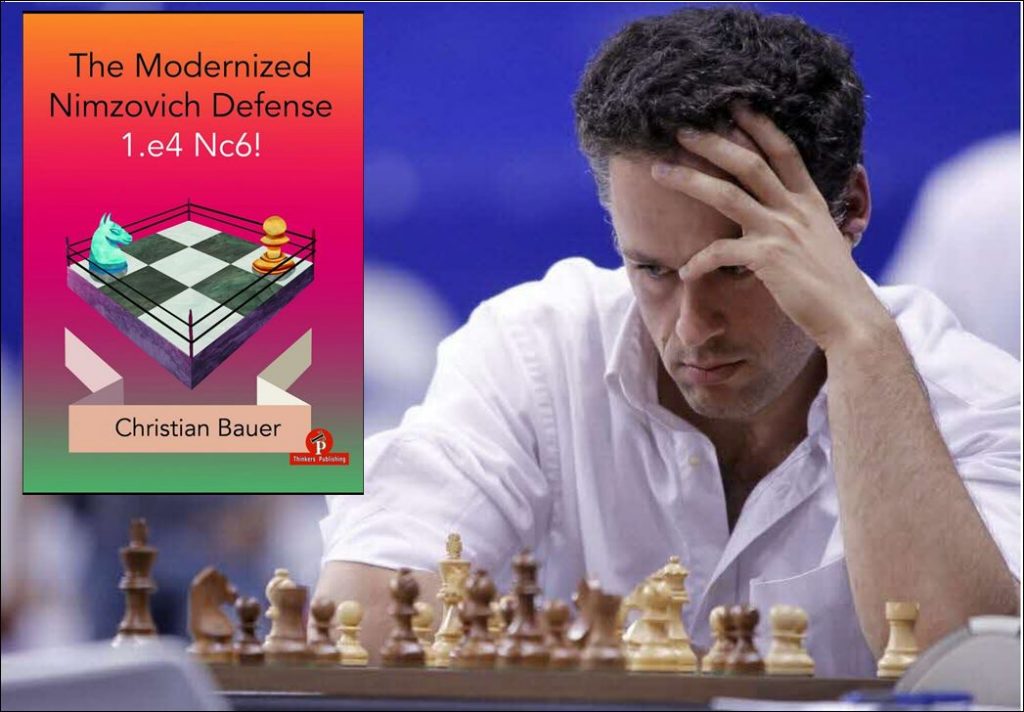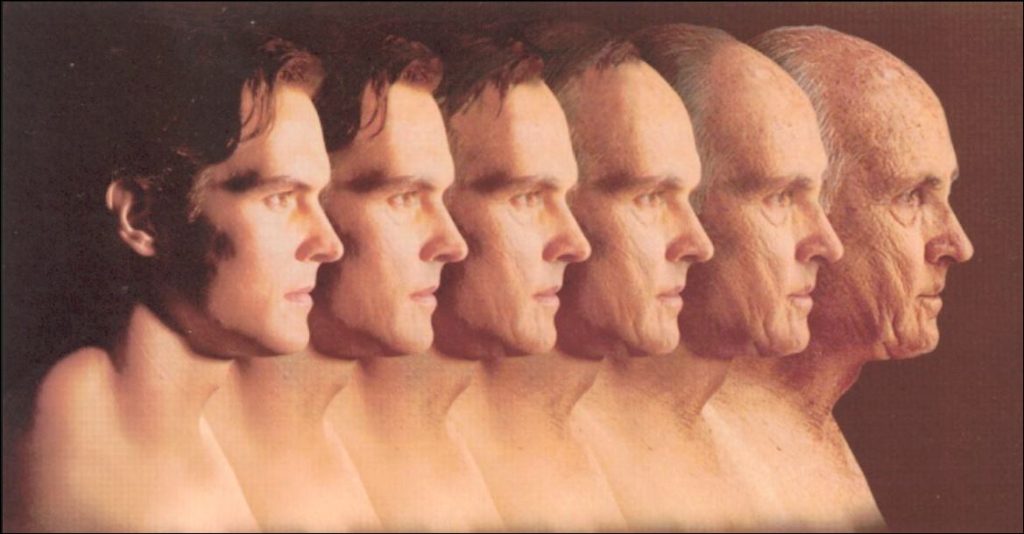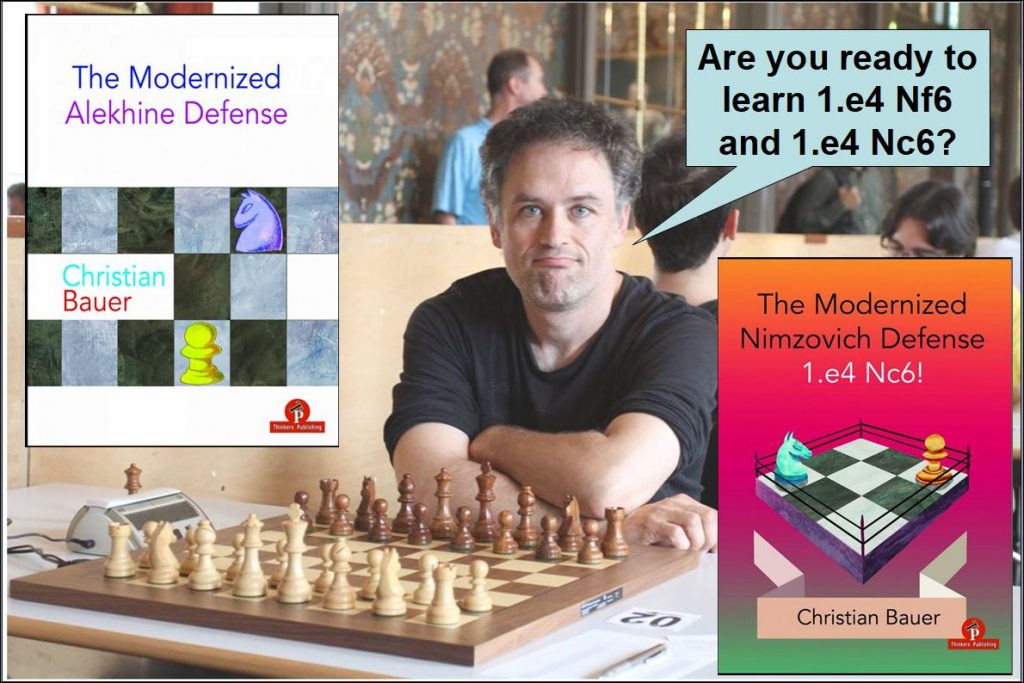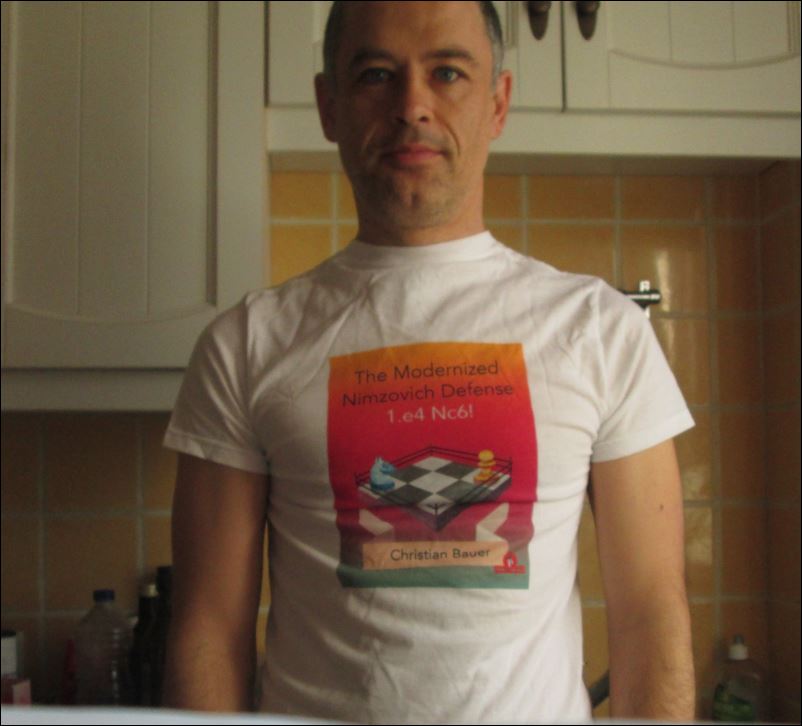
While living the American Dream, and making the IRS rich, my soul wanders to my true love: Chess. Luckily today, thanks to different social platforms one can read news, breath, and consume chess content 24/7. Chess has a plethora of characters, top GMs, endless titled players and other chess aficionados who are always ready to talk about chess. This is an interview to GM Christian Bauer who has published many books and DVDs.

Davide Nastasio: Spider Man was bitten by a radioactive spider, Captain America was a secret army experiment in creating a super soldier, what is your super hero story which brought you to the chess world?
Christian Bauer: It all happened by chance, I was spending holidays at my grand-parents and my youngest uncle told me the rules (he wasn’t aware of the “en passant” rule, but that was a detail which didn’t stop me from winning my 1st tournament, a regional championship U10, with 11/11 🙂
I was curious and willing to play any kind of cards or society games at the time, and my beginnings with chess were quite successful.
DN: Many would like to become titled players, but maybe they don’t understand the number of hours one needs studying chess and playing in tournaments weekly, do you have an estimate number?
I think that mostly depends on one’s natural skills + obviously the environment. In comparison with many colleagues I certainly work less but play more often, and was lucky enough as a kid to have many opportunities and people around to drive me to tournaments.
Pretty hard to tell a number, but I see playing less than 50 classical games per year as too little, and if 1h chess/day should be enough to improve one’s level, it is also likely not sufficient for most players to reach a Master level.
DN: Tactics is mentioned as a weak point of the amateur or club player, yet the chess market is full of books about tactics, apps with thousand of tactical positions, and sites with tactical training. Maybe the real problem is the translation in the amateur brain between the 2D of the screen and the 3D of the chess board?
CB: There could also be other explanations, like the temptation not to try very hard but instead after a rather brief moment to have a look at the solution !
In a chess game you also don’t know when you have to “seriously look for tactics”. I mean, on principle one shall be all the game long alert, but no one tells you at a certain point you can win thanks to a combination or so.

DN: Is it possible that visualization becomes worse with aging?
CB: I tend to believe everything becomes worse with aging ! True you have gained in experience, but chess requires a lot of energy, especially if you play a whole tournament.
As for visualization in particular ask me again in 10 years !
DN: What do you believe is the reason older players cannot keep up with younger players at GM level?
CB: See my previous answer.
Many things have changed since I started playing, and even more since people over 60 did. If one wants to play some trendy or sharp lines, this requires to let the computer run and memorize a lot of opening variations. And then one needs to play a 4-6h games afterwards.
I think one reason why people who were ahead in theory at their peak some 20 years ago, like Kasparov or Kramnik, have preferred to quit chess, is that nowadays their opening preparation can be neutralized by strong GM’s, and then outplaying much younger opponent’s and staying fit for the whole game (not to say a whole tournament) is hard.

DN: Capablanca or Lasker were famous for answering: how many moves do you look ahead with a variation of: just one, the right one etc. Yet, watching many of Bronstein’s games it is possible to see he really calculated 4-5 moves ahead quite precisely, before launching an attack or approving a sacrifice, and that can be seen also by some time-stamps he wrote during the games. Do you calculate 4-5 moves ahead?
CB: It all depends on the position. When this one has become simplified, in an ending for instance, it is not very difficult. In a tense middlegame fight, where at every move you and your opponent have 3-4 valid options, this is not feasible over the board. One has to trust one’s instinct then.

DN: Kasparov latest blitz tournament surprised everyone, because he had a 2300 performance. After the tournament he said that the evaluation of the openings he played, was totally changed by nowadays engines, compared to his former analysis and evaluations. It seems at professional level the real research is made by engines, not humans. What do you think about it?
CB: I think this is unfortunately true, though one also needs to give the computer right directions at some moments. Nowadays a lot of tournaments are broadcasted live, and if you see an interesting idea, new to your knowledge, you just have to click and ask the computer’s opinion. Even thinking by yourself isn’t necessary anymore !
For more complex positions the computer may change its mind, and Top GM’s need seconds to check lines carefully, but mostly I think one needs to verify everything with the machine.
DN: Fischer was struggling in opening preparation for his 1992 return match against Spassky, once more it seems at professional level the opening phase is the most important part of the game, what do you think?
CB: A very strong chessplayer has to be universal, good in the opening, middlegame and endgame. But in the endgame the theory isn’t evolving much or at all, and there are too many possibilities to check in the middlegame. This leaves the opening as the only part of the game where a hard work is permanently possible, so it is logical to focus on that.
DN: Can you play Blindfold games, and what is your opinion of blindfold play?
CB: Yes, of course, at a certain level I think it is normal to manage. I see it mostly as “for the gallery”, an impressive display for the broad public. Playing too many blindfold games simultaneously seems (mentally) dangerous to me.
DN: I listened to an interview with Anna Muzichuk, and she kept her preparation for the women’s world championship secret. Does it really mean she does something all other modern professional players and their coaches don’t do?
CB: I have absolutely no idea on that topic, but I’m skeptical if doing something else than opening and perhaps mental preparation can help.
DN: Some titled players are paranoid about playing online because of cheating. What’s your take on it?
CB: Cheating also exists in OTB play, but of course it is easier during online events, even if one has to use a camera. From the organizers point of view I regret it complicates matters, requires to hire arbiters, use zoom, and eventually check games of an eventual cheater.
I have been a victim of cheaters on some rare occasions, even when nothing at all was at stake. I didn’t care much, believe the proportion of cheaters remains rather low but this is definitively a problem.

DN: Titled players before Chessbase all grew up reading books, some even had only 1-2 books (those from Soviet Union) who read over and over. Yet today thanks to Chessbase Megabase with over 8 million games, one can find everything with few clicks. Do you think books are still needed to learn chess?
CB: Books are certainly still a very helpful tool to learn chess. One can take time, come backward as often as needed and above all read explanations, plans, counterplans, thematic ideas or tactical motives. If one only prepares by clicking and asking the computer’s advice one misses all this useful information.
DN: Do you remember some of the chess books you read when you were young, which were quite important in your improvement as chess player?
CB: I have to confess didn’t read many myself, but clearly remember a book of Shaun Taulbut on the French Defence, some Chess Informant issues and some large white soviet books with records of “young masters tournaments” among others. I had also some general opening books, and the magazine Europe-Echecs at my disposal.
DN: Reading some of Tal’s interview, he mentioned he would watch 70-80 games a day. Yet, when I try to watch some of Carlsen’s bullet games, I often lose myself in the analysis, or in asking myself why he didn’t play some other moves. Bottom line, when I watch 3-4 games a day, is a kind of record. Do you think is there a benefit in watching many games also if one doesn’t understand them?
CB: I wouldn’t advise (re-)playing or analysing bullet games. As for the rest I think there is “always” a benefit in watching games, especially from top GM’s, as a daily routine. But we don’t all learn/work/improve the same way, for instance I believe it brings me something to watch games on a daily basis even if I don’t analyse them carefully or at all. When I was a teenager I tried to understand the games of the above mentioned soviet books, and replayed them many times for that purpose.
DN: Do you have any advice for senior players in the 2000 range?
CB: Just to play regularly and enjoy it !
DN: In the past century some top players said studying blitz games was stupid. Yet I’ve seen many of Carlsen’s bullet games on Lichess and he plays like an engine (at the moment his bullet rating is around 3150 like a weak stockfish), even some seemingly common moves he makes in the endgame have a plan behind it. The funny thing is: he using only 60 seconds for an entire game. What’s your opinion about it?
CB: Carlsen is undoubtlessly the best player and I wouldn’t discard his bullet games. Yet even he has to little time to check much, and compared to his displays in 5 minutes games I wouldn’t be surprised if the computer refuted some seemingly masterpieces in bullet.

DN: would you tell us something about your book published with Thinkers Publishing ?
CB: So far I have written Candidate-Moves (translated into French and German), The Modernized Nimzowitsch Defense 1.e4 Nc6 and the Modernized Alekhine Defense for Thinkers Publishing. In the first quoted that took me the most time, I analyse some of my own games from White’s and then Black’s point of view, suggesting various alternatives that mostly depend on a player’s tastes (solid, aggressive, original etc).
The 2 others ones are opening/repertoire books, more similar to the books I had written before (Play 1…b6, The Philidor Files and Play the Scandinavian).
I believe the efforts I have put into the two latest books shall give a player enough material and confidence to try the quoted openings in a practical game.
Davide Nastasio: This concludes the interview. If readers of this and other interviews want to ask more focused questions for future interview, please contact me on Facebook or Twitter. A big thank to GM Bauer,and Thinkers Publishing (https://thinkerspublishing.com/) for kindly helping make this interview possible.
